What You Need To Know About Acid Reflux – 5 Essentials Oils for Relief and 1 to Avoid
Essential Oils for Acid Reflux: What You Need to Know
Overview
Acid reflux is one of the most frequently experienced digestive complaints in America. It is estimated that about 20% of the US population lives with gastroesophageal reflux disease (GERD)—a chronic condition that refers to recurring acid reflux symptoms, usually more than twice a week.
Heartburn is a typical symptom of acid reflux. It feels like a burning sensation in the chest, which usually appears after eating and gets worse on lying down. It can also cause other discomforts like belching, nausea, vomiting, throat irritation, bad breath, a sour taste in the mouth, or regurgitation of sour liquid. While over-the-counter medicines can provide quick relief, many people now prefer alternative remedies that are much safer and work holistically.
Using essential oils for acid reflux and heartburn symptoms is increasingly popular. Essential oils have been used since time immemorial to soothe stomach distress and improve gut health. Evidence suggests that certain plant compounds possess carminative, digestive, nourishing, warming, and anti-inflammatory properties that can naturally relieve symptoms without harming digestive enzymes.
Read on to find out the top essential oils for acid reflux and heartburn—and how you can use them.
What is acid reflux?
Acid reflux happens when stomach acids leak back into the esophagus (food pipe)—a muscular tube that carries food from the mouth to the stomach. Since esophageal walls lack protective layering, strong acids from the stomach can irritate its lining and cause inflammation.
In normal conditions, the esophagus is shielded from stomach contents by a valve (known as the lower esophageal sphincter) that closes tightly after food transfer. Sometimes, due to abdominal pressure or bad eating habits, this valve may relax abnormally and allow acids to seep into the food pipe.
We all experience acid reflux and heartburn from time to time, usually after a heavy meal or when eating late at night. But if a person experiences it more than twice a week for several weeks in a row, it may mean they have developed gastroesophageal reflux disease. Living with GERD for a long time can cause serious damage to esophageal muscles and is a risk factor for esophageal cancer. It can also worsen respiratory allergies like asthma and lower sleep quality.
What causes acid reflux?
Acid reflux can affect anyone of any age but is more frequently experienced by those above the age of 40 and overweight. It is also extremely common during pregnancy and around periods.
Many factors can cause acid reflux, such as eating heavy meals, eating fatty and spicy foods, lying down immediately after eating, obesity, smoking, drinking too much alcohol, high caffeine intake, or too much pressure on the abdomen (usually during pregnancy). Some medications are also known to trigger acid reflux and heartburn.
Conventional treatments for acid reflux include OTC medicines, antacids, H-2 receptor blockers, and other drugs that lower stomach acid production. However, many people are concerned about their unpleasant side effects and long-term effectiveness. It is not advisable that stomach acid should be lowered. God made it naturally acidic for a reason. Health experts point out that GERD and acid reflux are mainly caused by bad eating habits and, therefore, the key to management lies in prevention and natural healing.
The top essential oils for acid reflux and heartburn
1. Ginger oil
Renowned for its powerful anti-inflammatory and analgesic abilities, ginger oil is one of the most popular essential oils for acid reflux and heartburn relief. Evidence suggests that inhaling ginger’s comforting vapors, or applying it topically on the upper abdominal area, can alleviate inflammation of esophageal walls and allow acids to move back into the stomach.
For centuries, ginger has been a go-to remedy for calming an aggravated stomach, fighting stomach infections, or relieving IBS symptoms. Using ginger oil after a heavy meal is well-known to speed up stomach emptying and can help ease bloating, belching, gas, dyspepsia, heartburn, acid reflux, hyperacidity, and painful symptoms. Its warming and invigorating aroma also improves mood and reduces feelings of fullness, nausea, vomiting, uneasiness, and a sour taste in the mouth.
2. Lemongrass oil
Eating large meals can make your stomach stretch out, putting unnecessary pressure on the lower esophageal sphincter muscles. This causes the valve to open and allows stomach acids to leak into the esophagus. Eating large portions of fatty and fried foods can make matters worse, as fats can slow down the digestion process and delay stomach emptying.
Sipping lemongrass tea, or massaging diluted lemongrass oil on the abdomen, is a time-honored remedy to stimulate the secretion of gastric juices and quicken the digestion process. Studies have found lemongrass helpful in relieving various digestive complaints, including heartburn, vomiting, acid reflux, belching, hyperacidity, bloating, stomach aches, and diarrhea. Used in clinical aromatherapy, lemongrass oil can also improve nutrient absorption and bowel regularity.
Its major active compound citral is known to have strong anti-inflammatory and astringent properties that can reduce swelling of esophagus muscles and prevent long-term damage. In a 2012 mice study, lemongrass helped protect the GI tract from inflammation and prevented gastric ulcers.
3. Coriander seed and leaf oil
Coriander (Coriandrum sativum) is an aromatic culinary herb that produces two incredibly versatile essential oils—both of which have long been used in traditional medicines but are sadly overlooked today. Researchers have identified over 50 medicinal compounds in coriander seed oil and leaf (also known as cilantro) oils, which are known to have anticancer, antidiabetic, anti-inflammatory, analgesic, and antimicrobial effects.
Evidence suggests that inhaling coriander’s warming, appetizing, spicy, herbaceous aroma can accelerate the digestion process and allow the stomach to empty more quickly. It is also known to help with gastroparesis—a condition that can make foods stay longer in the stomach and cause symptoms like vomiting, nausea, heartburn, and acid reflux.
Although coriander seed and leaf oils are aromatically very different, both have been historically used to improve digestion and gut health. The most beautiful thing about coriander is that, unlike antacids and other medications, it does not decrease gastric juices. It can calm an overactive stomach without slowing it down. Gastric juices and digestive enzymes are important for breaking down foods and absorbing nutrients. Coriander facilitates the action of enzymes, stimulates the gut, and increases blood flow to intestinal muscles.
4. Rose essential oil
Hailed for its unparalleled, heavenly aroma, the essential oil derived from Damask roses (Rosa damascena) is a powerful astringent and anti-inflammatory agent that can help with a variety of gastrointestinal issues. In traditional Iranian and ayurvedic medicine, it is considered an excellent digestive tonic and is often recommended for soothing dyspepsia, heartburn, acid reflux, hyperacidity, diarrhea, gastric ulcers, leaky gut, cramping, and IBS symptoms.
In a 2021 trial, the efficacy of rose oil capsules in reducing symptoms of acid reflux was found comparable to omeprazole—a medical drug commonly used for this purpose. Researchers pointed out that while omeprazole has many short-term and long-term side effects, from headaches and nausea to bone fracture and kidney damage, rose oil is relatively a much safer option. Another 2018 study found rose oil effective in soothing gut inflammation and improving symptoms of ulcerative colitis.
It is important to note that in both studies, rose oil was prepared by boiling rose petals in sesame oil. This method produces an extremely mild and edible version, whereas steam-distilled rose essential oil is extracted from insanely huge amounts of rose petals (approx. 60 roses for a single drop). Rose essential oil indicated in traditional medicines is not safe for consumption. It is meant to be used by inhalation or topical application method.
5. Bitter orange oil
While citrus fruits can increase stomach acidity and are a well-known trigger for acid reflux (many people report 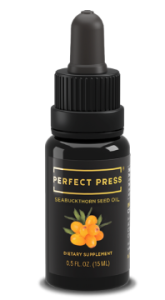
Bitter orange oil, which comprises about 90-95% d-limonene, is a traditional remedy for a wide range of digestive issues. It is often used to ease bloating and heartburn after a heavy meal. Inhaling its aromatic vapors through diffusion, or applying it topically on the upper abdominal area, has been known to soothe the esophagus lining, regulate inflammatory responses, neutralize gastric acidity, and facilitate the nervous system in alleviating acid reflux symptoms.
While bitter orange oil contains the highest concentration of d-limonene, this chemical is also present in other citrus oils, including sweet orange, lemon, grapefruit, mandarin, tangerine, bergamot, and blood orange oils—which are all known to help settle an upset stomach. D-limonene is also widely available in capsule form, and many people take it to naturally relieve heartburn, belching, and other symptoms of GERD.
What not to use: Peppermint oil
The cooling sensation of peppermint works as a digestive aid and is popularly used to ease cramps, bloating, and IBS distress. It relaxes intestinal muscles, lowers gut inflammation, and allows smooth movement of foods inside the GI tract. However, research suggests that its antispasmodic property may also cause abnormal relaxation of lower esophageal sphincter muscles, which may worsen acid reflux and heartburn. Experts suggest using this oil with extreme caution and in low concentrations.
Fennel and Lemon Oils
Fennel essential oil is known to balance the pH level within the body, especially the stomach, and lemon essential oils contain the compound D-limonene found in lemon peels. According to one study, D-limonene helps to calm stomach pains and also relieve nausea.
How to use essential oils for heartburn relief
Inhale warm vapors: Put 3-4 drops in home diffusers. Alternatively, add 3-4 drops in hot water and inhale the steam.
Abdominal massage: Mix 6-8 drops of essential oil (or blend) in 15-20 ml of extra virgin olive oil. Lightly massage the abdominal area in big, circularstrokes.
Make a synergistic blend: The healing power of essential oils is amplified when they are combined. Here are a few recipes that you can try for diffusion or massage. They are only to give you an idea of how to work with blends—so feel free to replace or add new ingredients as per your preference. You can also put them in a roller bottle for easy application but be sure to keep the concentration below 3%.
Blend 1 (herbaceous aroma)
- 3 drops of lemongrass
- 3 drops of coriander leaf
- 2 drops of basil
Blend 2 (citrus, spicy aroma)
- 3 drops of bitter orange
- 1 drop of lemongrass
- 2 drops of ginger
- 2 drops of coriander seed
Blend 3 (floral, herbaceous aroma)
- 3 drops of rose
- 2 drops of chamomile
- 1 drop of lavender
- 2 drops of rosemary
Safety and limitations of essential oils
Essential oils should never be consumed, but you can still enjoy their digestive benefits by inhaling the volatile compounds or massaging a diluted version on the abdominal area. For topical application, please remember to dilute them with a cold-pressed carrier oil.
If you are pregnant or trying to conceive, consider speaking with your doctor before using essential oils in any form.
Cold-pressed citrus oils can be photosensitive. Avoid sun exposure for at least 12 hours after topical application.
Final thoughts
Acid reflux is a common digestive disorder that affects a large number of people. If left unchecked, it can quickly become a chronic problem and significantly lower energy levels, sleep, productivity, mental health, and overall quality of life.
Essential oils are time-honored remedies that can help in the long-term management of GERD. When used correctly, these powerful botanicals can ease heartburn and uncomfortable symptoms, protect esophagus walls from inflammation, and improve healing.
However, it is important to remember that essential oils have limitations. If you are experiencing severe symptoms that are not improving with natural remedies, consider consulting a healthcare provider. Reassessing your lifestyle, establishing healthy eating habits, identifying your potential triggers, and avoiding inflammatory foods can also help. Another remedy to consider for overall gut health is the Seabuckthorn Seed Oil. Give it a try today.
Remember, “Do Something Everyday That Heal Your Body!”
To Your Health!
References
https://www.ncbi.nlm.nih.gov/pmc/articles/PMC6702398/
https://pubmed.ncbi.nlm.nih.gov/33735635/
https://pubmed.ncbi.nlm.nih.gov/18072821/
https://pubmed.ncbi.nlm.nih.gov/34466491/
https://www.sciencedirect.com/science/article/pii/S2221169115000647
https://www.ncbi.nlm.nih.gov/pmc/articles/PMC3326778/
https://www.ncbi.nlm.nih.gov/pmc/articles/PMC4170112/
https://www.ncbi.nlm.nih.gov/pmc/articles/PMC3217679/
https://www.ncbi.nlm.nih.gov/pmc/articles/PMC4223119/
Willette, RC., Barrow, L, Doster, R, Wilkins, J., Wilkins, JS., Heggers, JP. Purified d-limonene: an effective agent for the relief of occasional symptoms of heartburn. Retrieved from a proprietary study, WRC Laboratories, Inc. Galveston, Tx.



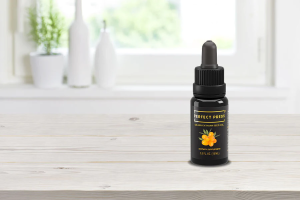
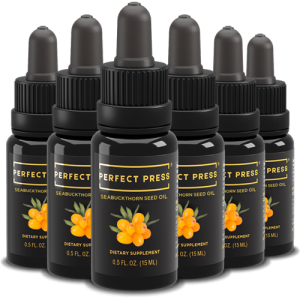







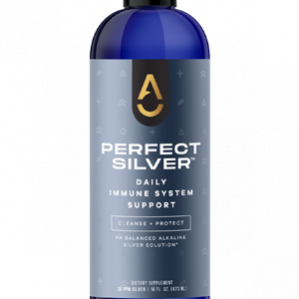


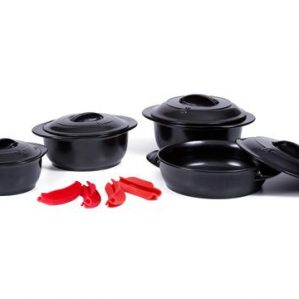
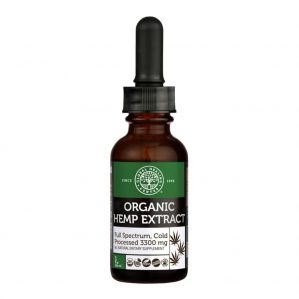











0 Comment